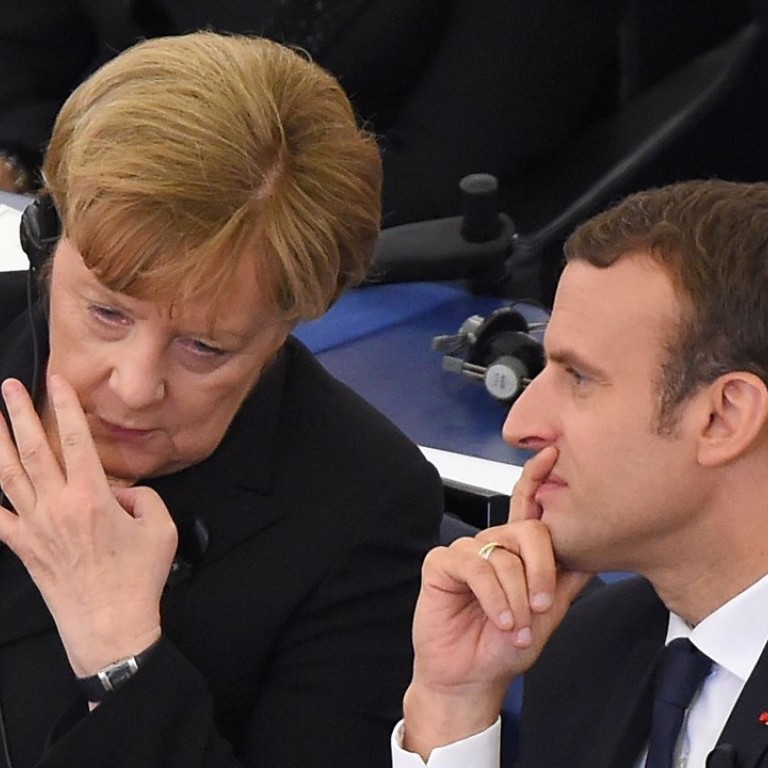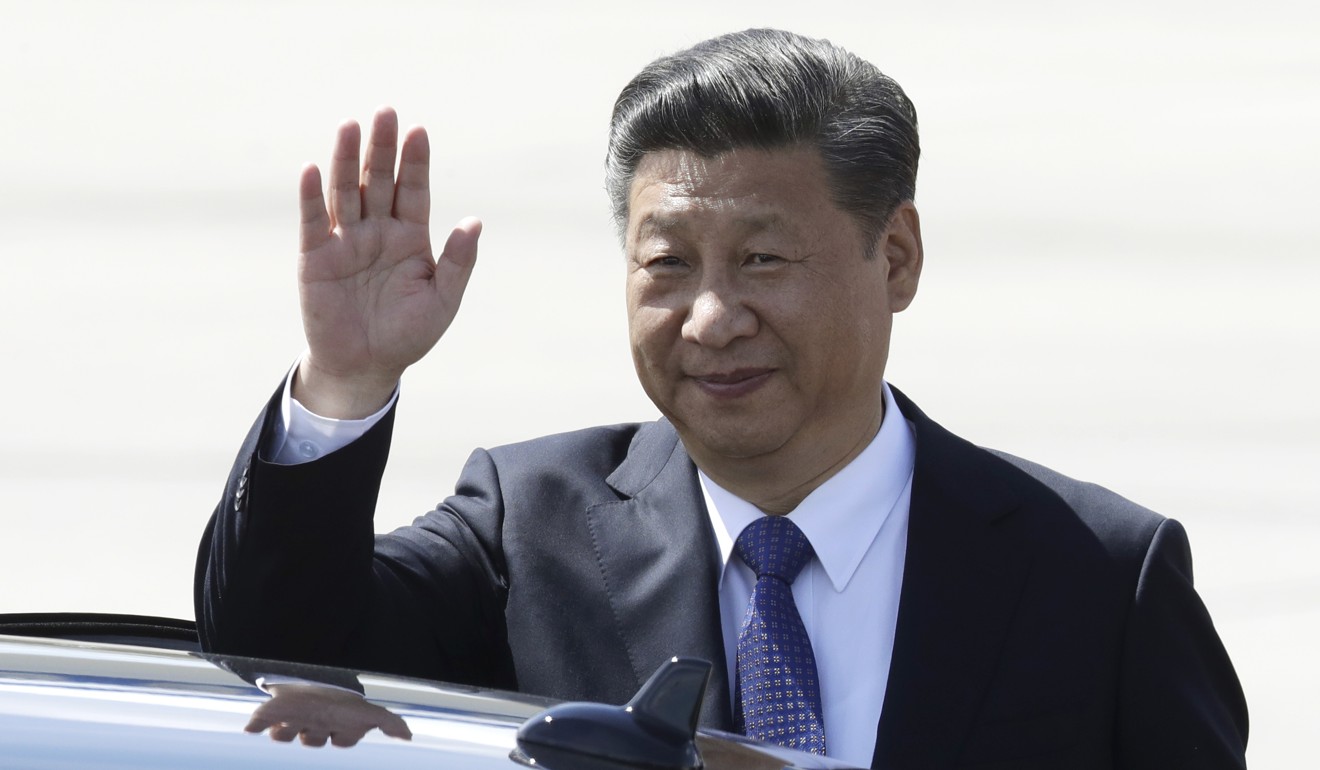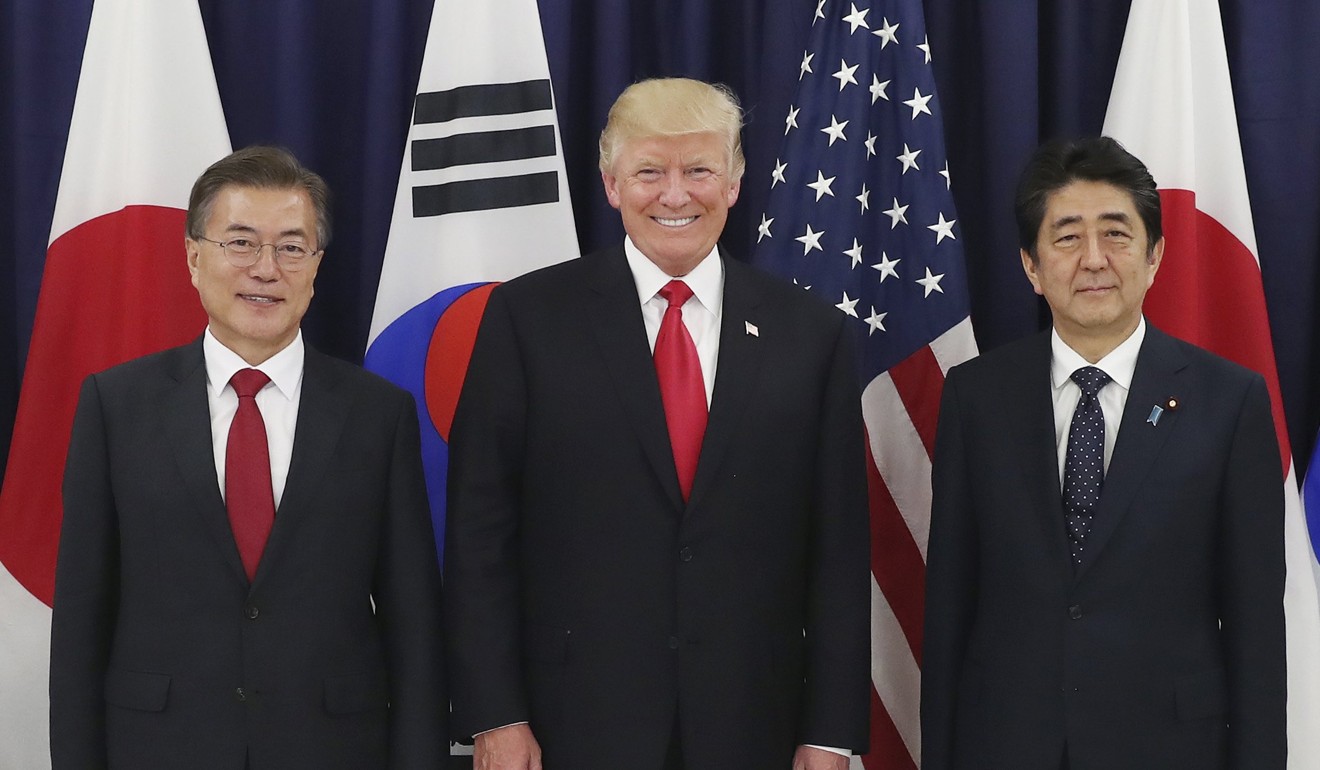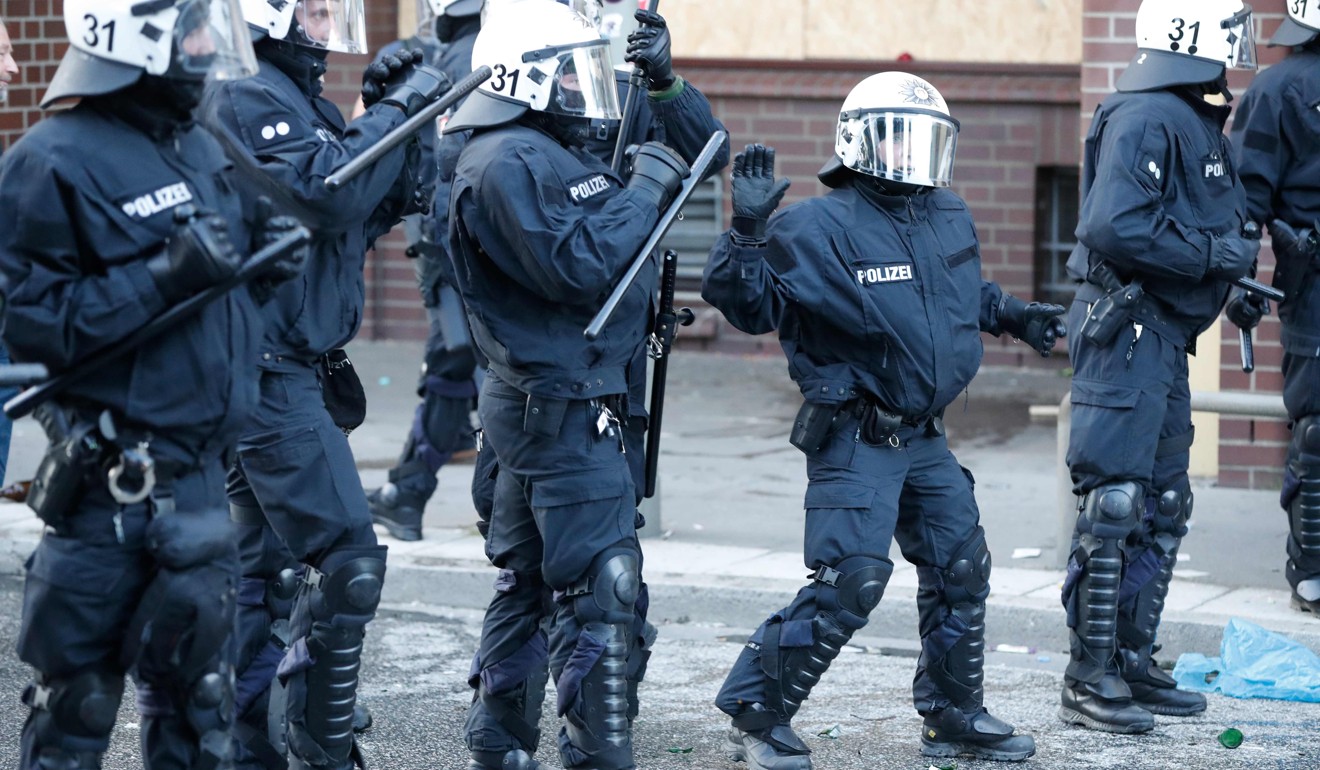
China to face a tougher, more confident EU at G20 summit amid ‘Merkel-Macron’ alliance
A European Union temporarily stabilised by an affinity between the leaders of Germany and France will demand more from Beijing, analysts say
China now faces a tougher Europe when dealing with key differences, as a European Union temporarily stabilised by the “Merkron” alliance demands more from Beijing.
When President Xi Jinping – who is in Hamburg for the Group of 20 summit – met German Chancellor Angela Merkel in Berlin on Tuesday, he said China supported a “united, stable, prosperous and open” EU.
At the G20 summit, China and the EU will likely stand together in promoting key issues such as the Paris climate accord, globalisation, free trade and multilateralism against US President Donald Trump’s protectionist and unilateralist views.
But recent developments would make it more difficult for the two sides to make progress in breaking deadlocks on issues such as trade disputes, China’s market economy status and human rights, analysts said.

In early June, Premier Li Keqiang visited Berlin and Brussels. At the China-EU summit, Li and European Council President Donald Tusk agreed to cooperate on adhering to the Paris climate deal despite the US withdrawal from the accord, but failed to make a formal statement because of divisions over trade.
One month later, the EU’s position is even stronger after the results of parliamentary elections in France and Britain.
“The current situation of the EU is so different from China’s assessment earlier this year,” said Feng Zhongping, director of the Institute of European Studies at the China Institute of Contemporary International Relations.
Against a backdrop of steady economic growth by European countries in the first half of this year, in France, not only did pro-EU candidate Emmanuel Macron defeat populist Marine Le Pen to become president, but Macron’s centrist party scored a landslide victory over the far right.
Meanwhile, in Britain’s election, the “hard Brexiter” Theresa May and her Conservative Party lost their parliamentary majority, severely weakening the May government’s position in negotiations to leave the EU.
Macron soon met Merkel and the pair announced their intention to boost cooperation and further integrate and reform the EU.
“The reassured FrancoGerman motor and the setback of Brexit united the EU,” said Wang Yiwei, head of European studies at Renmin University in Beijing. “People’s faith in the union is recovering and the threat of imminent collapse of the bloc – if Le Pen won – has gone for now.”
Beijing has a significant interest in a united and stable EU, as Europe is a vital market for Chinese exports and investment. But the temporary easing of the EU’s crisis allowed it to take a firmer stance against China, and the US, said Ding Chun, director of the Centre for European Studies at Fudan University in Shanghai.

Trade disputes have been a central problem, with the EU being China’s biggest trading partner and China the EU’s second-largest trading partner after the United States. Over the years, the EU has launched hundreds of anti-dumping investigations into Chinese exports, and refused to grant China market-economy status (MES) as per Article 15 of its World Trade Organisation accession agreement – a distinction that would give China advantages in future trade disputes.
“The EU also wants to leverage the MES to push China to compromise in other areas like market access, government procurement and SOE advantages,” Ding said.
Meanwhile there was a new tendency in EU-China economic relations for the EU to stress “reciprocity”, urging Beijing to further open its markets lest the EU put restrictions on Chinese capital, said Cui Hongjian, director of European studies at the China Institute of International Studies.
And as Europe sees more Chinese acquisitions of its assets, some big EU economies, such as Germany, France and Italy, have suggested setting up an agency to examine foreign investment – similar to CFIUS (the Committee on Foreign Investment in the US).
These views can be “linked to the trend of rising populism in Europe”, Ding said. “European politicians, including Macron and Merkel, have to address their electorates and domestic politics.
“Narrowing these economic divisions will take a long time, tough negotiations and a lot of give and take,” he said.
Besides trade, China and the EU are far apart on human rights and other ideological and political issues. Both sides support globalisation, for example, but their definitions of the term are very different. “The EU wants a rules- and value-based globalisation, while China wants development-driven globalisation,” Wang said. “These are competing – even conflicting – approaches.”

But at a summit like the G20, Chinese and European leaders will be looking at the broader challenges. “At the moment, the worst uncertainty in the world is the United States under Trump,” Cui said. “China could be hoping that Germany and the EU will try to identify which is their biggest problem – trade friction with China or fundamental differences with Trump in terms of free trade and climate change.”
Wang noted that China, the EU and the US were in a power triangle. “For China and the EU, they both want to play the US card against each other,” he said.

